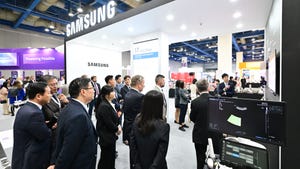Australian court clears way for $10B Vodafone-TPG merger
Australia's top court has overruled its regulator and cleared the way for a merger between the mobile and cable operators.

The Australian Federal Court has given the go-ahead for the A$15 billion ($10.1 billion) merger between Vodafone and TPG, overturning a ruling by the competition regulator.
The Australian Competition and Consumer Commission (ACCC) blocked the merger last May, arguing it would limit competition in both mobile and broadband.
The judge's ruling has some obvious parallels with the US court decision earlier this week that also rejected claims of reduced competition and approved the Sprint-T-Mobile merger, similarly creating a beefed-up third mobile competitor. (See IT'S OVER: T-Mobile, Sprint merger approved – reports .)
But the Australian case, rather than combining two existing mobile players, brings together the third-largest mobile operator and the number two broadband operator with just a fledgling mobile business.
ACCC Chair Rod Sims said in a statement on Thursday that consumers had "lost a once-in-a-generation opportunity for stronger competition and cheaper mobile telecommunications."
Justice Middleton disagreed. He said it wasn't the number of competitors in the Australian market, but the ability of the players to compete that mattered.
"Leaving TPG and Vodafone in their current state would not create more competition in the retail mobile market," he ruled.
At the core of the case were TPG's reclusive CEO-chairman, David Teoh, and the contentious ban on Huawei.
TPG, which has some 400,000 customers on its MVNO service, abandoned plans to roll out a 4G network after the government excluded Huawei from Australian 5G in August 2018. (See Australia Excludes Huawei, ZTE From 5G Rollouts.)
Teoh argued that the Huawei prohibition made the rollout unviable because of the higher cost of rival vendor equipment. (See Australia's TPG Had No 5G Plan. Does Anyone?)
But the ACCC said TPG had the ability to overcome its "technical and commercial challenges." It had mobile spectrum, an extensive fiber transmission network, a large customer base and well-established brands.
Sims defended the decision to reject the merger and said the commission was weighing its options.
"But we know that competition is lost when main incumbents acquire innovative new competitors."
For all the latest news from the wireless networking and services sector, check out our dedicated mobile content channel here on Light Reading.
Hugy Ujhazy, the vice president of telecom and IoT for market research firm IDC APAC, said the argument for the consolidation in both Australia and the US was the same – scale for 5G.
"In terms of impact on the Australian market I think it is overall positive to have three sizeable wireless providers," he told Light Reading. "The scale Vodafone-TPG brings will give consumers choice and improve the ability of providers to give the level of coverage needed for both 4G and 5G services."
Business commentator Stephen Bartholomeusz wrote in the Sydney Morning Herald that "only the ACCC" would believe that TPG might some day change its mind and build its own network.
"It has been apparent to everyone but the ACCC that, as TPG chief executive David Teoh argued, without Huawei and the capacity to upgrade a 4G network to 5G cheaply, TPG wouldn't have the financial capacity to build a network that could compete with Vodafone, Telstra and Optus," he said.
Iñaki Berroeta, the CEO of Vodafone Australia, a joint venture between Vodafone Group and Hutchison, said the company would move quickly to deploy 5G.
He said the merger should be completed in mid-2020, subject to the remaining regulatory and shareholder approvals and any appeal by the ACCC.
— Robert Clark, contributing editor, special to Light Reading
Read more about:
AsiaAbout the Author(s)
You May Also Like












